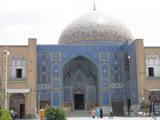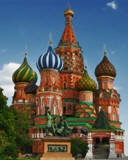Thematic Description
Contrary to the expectations of 20th-century theorists, the
modern world is far from becoming standardized. Instead, the
increasing mobility of individuals, groups, cultural
content, information, and technology has led to greater
cultural, customary, religious, and ethnic diversity in
nearly every part of the world. This growing diversity has
resulted in more frequent, direct, and complex interactions
between individuals, communities, organizations, religious
groups, and states. As a result, a range of questions
emerges about the values that govern these multifaceted
interactions. While some of these exchanges lead to peaceful
cooperation, trade, and shared experiences, they also give
rise to tensions and, at times, open conflict. Thus, the
contemporary world faces the crucial challenge of
establishing norms—both formal and cultural—that shape not
only relationships and laws but also the intentions and
capacities for meaningful engagement across diverse groups.
Many countries and traditions possess rich cultural
heritages that offer solutions and practices known for
centuries. We also have ethical and religious systems that
can inspire contemporary efforts to build bridges of
understanding and share values that transcend differences in
traditions, lifestyles, and diverse spiritualities across
the globe. In the European tradition shaped by Christian
theological and social thought, the concept of the "rights
of nations" (ius gentium) offers a path toward fostering
social order, respect for the dignity of distinct
communities, and creative forms of development. While these
values have become urgent in recent decades, they have been
the subject of study and debate since antiquity.
Systematically, they gained a lasting—though somewhat
forgotten—presence in the late Middle Ages.
These values are not new; they are exemplified in the
principles of intercultural and international relations
described by the Jagiellonian ideas, which originated in the
Kingdom of Poland and later the Polish-Lithuanian
Commonwealth from the early 15th century. These ideas
pioneered the "rights of nations," particularly within the
intellectual circles of the Krakow Academy, developed by
Pawel Wlodkowic (Paulus Vladimiri, 1370-1436), a leading
figure of the Krakow school of international law. Wlodkowic,
a prominent Polish scholar and rector of the Academy, was a
key participant in the Polish king's delegation to the
Council of Constance (1414-1418). His groundbreaking work
still resonates today in the tradition of John Paul II's
homeland.
These ideas, rooted in Christian values of respect for the
dignity of individuals and their communities, have
historically been applied to define relationships as an
axiological principle, relevant across various contexts and
cultural epochs. This suggests that we can still find values
that transcend temporary and instrumental concerns, allowing
us to build enduring bridges of understanding. The aim of
this conference is to showcase initiatives that serve as
examples of such bridges—an arsenal of inspiration and
genuine communication. This approach departs from one-way
influence, transmission, or manipulation, and instead
embraces dialogical communication.
Wlodkowic’s concept of international and intercultural
relations highlights the potential of interaction based on
reciprocity, exchange, and interdependence, acknowledging
the subjectivity, intentionality, and agency of all
participants. This form of communication seeks values that
are universal, and even transcendent, yet deeply rooted in
and recognized through real-life experiences.
The presentations and speeches at the conference will serve
as an invitation to expand the platform for showcasing real
examples, projects, and reflections that illustrate the
pillars of intercultural bridges. These examples will
inspire culture-forming activities, generating a call for
similar initiatives that respect the principles of the
"rights of nations" in various parts of the world, within
different social systems, and in the context of new
technological and media realities. One of the conference’s
key objectives is to encourage action that breaks away from
the civilizational and political cynicism often driven by
technocratic or power-centric values. By exploring the
axiological meaning of this concept and its implications for
"rights"—specifically human and cultural rights—the
conference aims to demonstrate the creative potential
inherent in both the intellectual and practical dimensions
of this issue.
The concept of the "rights of nations," particularly as
developed by Paweł Włodkowic, emerged from European and
Christian cultural circles. His theory introduced key
categories that laid the pioneering foundations for social
personalism, which applies not only to individuals but also
to human communities. A vital example is the concept of
national dignity, which remains highly relevant today,
especially within transnational organizations and
multicultural societies. Thus, the conference seeks to
foster reflection on the cultural and ethnic interpretations
of Włodkowic’s ideas, encouraging participants to explore
both the universal and specific meanings of these concepts
in diverse social contexts.
Additionally, the conference will address a critical
question from Włodkowic’s thought that remains relevant in
today’s global interactions: What are the limits of the
rights of nations and cultural rights, particularly in
preventing the excessive ambitions of certain groups within
multicultural environments? This inquiry invites deeper
reflection on the balance between national identity and the
broader framework of global coexistence.
The conference proposals can be organized into three main
thematic blocks:
Block I: The
Contemporary Interaction of Cultures
- The growing phenomenon of cultural interaction in the
modern world
- Consequences of cultural diversification in the global
context
- Domination and marginalization of cultural communities as
expressions of power relations
- Cultural subjectivity in the media-driven world
- Core values of national communities amid political
divisions
- Intercultural dialogue among nations and ethnic groups in
an interactive global environment
Block II: The Rights of Nations – Historical and Theoretical
Foundations
-
The rights of nations as part of the heritage of the "Krakow
School of International Law"
-
Social personalism within Kraków Humanism
-
The rights of nations as a form of human rights
-
The rights of nations as cultural rights
-
Cultural anthropology and the concept of the rights of
nations
-
Christian origins: navigating between particular and
universal models of human rights and social order
-
Intercultural rights in contemporary contexts
-
The rights of nations as the right to cultural subjectivity
- The limits of the rights of nations concerning autonomy,
agency, and sovereignty
Block III: The Rights of Nations in Modern Cultural and
Social Contexts
-
The right to patriotism within a pluralistic, intercultural
world
-
Communicating heritage as a challenge in intercultural
education
-
Cultural rights of ethnic communities in multinational
corporations
-
The rights of nations in the consciousness of cultural and
political elites
-
Axiological foundations of ethnic policies in multicultural
nations
Abstract
Please send an abstract (300-500 words) and a brief CV to
Professor Leszek
Korporowicz [leszek.korporowicz@poczta.onet.pl],
Professor Sylwia Jaskula [sylwia.jaskula-korporowicz@uj.edu.pl]
and [cua-rvp@cua.edu] by April 30, 2025. Full paper will be
due by May 20, 2025. Well-developed papers will be
considered to be published by the RVP in its publication
series "Cultural Heritage and Contemporary Change."
Logistics
There is no registration fee. Conference
participants will cover the costs of their own travel. For
accommodations contact the local conference organizer [leszek.korporowicz@poczta.onet.pl]
and [sylwia.jaskula-korporowicz@uj.edu.pl]. The
conference will be conducted in English. The conference is
spported by Pontifical
University, Ignatianum University, and Cardinal Stefan
Wyszyński University.
Contact
Professor Leszek
Korporowicz
Cardinal Stefan Wyszyński University
Warsaw, Poland
Jagiellonian University
Krakow, Poland
leszek.korporowicz@poczta.onet.pl
Professor Sylwia
Jaskula
Jagiellonian University
Krakow, Poland
sylwia.jaskula-korporowicz@uj.edu.pl





